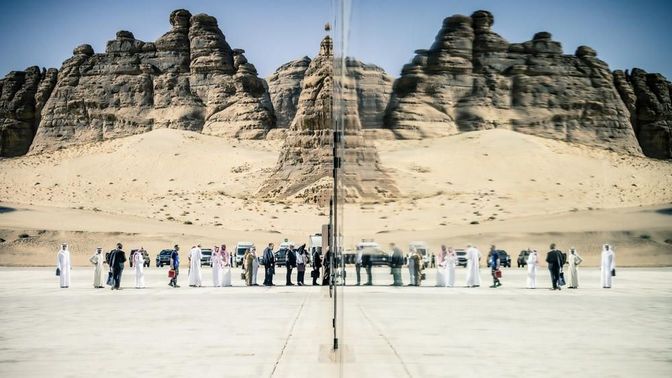

Munich Security Conference Hosts Panel on Energy Security at Digital Life Design Conference
On May 21, the Munich Security Conference (MSC) hosted a panel discussion at the Digital Life Design (DLD) Conference in Munich, in which four Munich Young Leaders discussed Europe’s energy dependence on Russia and its geopolitical consequences.
On May 21, four Munich Young Leaders engaged in a discussion on Europe’s energy dependence on Russia hosted by the MSC at this year’s DLD Conference. The panel consisted of Zanda Kalniņa-Lukaševica, Parliamentary State Secretary at the Latvian Ministry of Foreign Affairs, Sven Mikser, Member of the European Parliament from Estonia, and Oleksiy Ryabchyn, advisor to the CEO of Naftogaz Ukraine and energy advisor to the Deputy Prime-Minister of Ukraine. The discussion was moderated by Cathryn Clüver Ashbrook, Non-Resident Fellow at the Global Public Policy Institute in Berlin.
There was strong consensus among the panelists on the need for Europe to achieve energy independence from Russia as soon as possible in the light of Russia’s war in Ukraine. Although everyone on the panel acknowledged that this comes with challenges for Europe, they did not see this as a reason to not pursue this goal. In the words of Sven Mikser, speaking on cutting energy ties with Russia: “Possible and painless are not synonyms. It is painful, but it is possible and necessary.” Kalnina-Lukaševica added that this decision should be a “no-brainer” for the EU, both in terms of its values and the economics, considering the immense costs generated by the war in Ukraine. Speaking from a Ukrainian perspective, Ryabchyn expressed his hope for more decisive actions by the EU regarding its energy dependence on Russia than it had shown in the past: “I spent a decade fighting Nord Stream 2. I do hope Ukraine will not spend another decade persuading Europe to impose sanctions and an embargo to stop financing this war machine”.
Kalnina-Lukaševica gave an overview of the strategy the European Commission is pursuing to rapidly decrease its energy dependence on Russia. This strategy has four main components. First, it aims to find alternative sources of fossil fuels to replace Russian gas, for example liquefied natural gas (LNG). Related to this is the second point, which is building up the necessary energy infrastructure, such as LNG terminals and electric interconnectors, to transport the energy provided by these new sources and connect all EU Member States in a common energy network. Third is the EU’s transition from fossil fuels to renewable energy sources, and the fourth part is reducing energy consumption in the EU. Kalnina-Lukaševica further warned that one must consider that the decision to cut energy supplies from Russia to the EU may not only be taken by the EU but also by Russia, as can be seen in the case of Finland. This is a contingency the EU should prepare for, she argued.
Finally, although the panel mostly focused on the energy crisis that had been created by Russia’s attack on Ukraine, there was also some cause for optimism. Ryabchyn stated he had feared that the EU would divert funds from the European Green Deal to address the rising costs of natural gas, but was relieved to see that, if anything, the war in Ukraine and the consequent energy crisis had only further motivated the EU to transition to renewable energy sources. He also pointed out that the massive reconstruction efforts that will have to take place in Ukraine after the war, though very costly, also provide opportunities for green innovation. The panel discussion concluded with a Q&A session with the audience.



